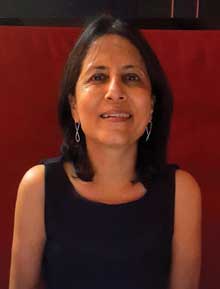Shagufa Kapadia
I am so pleased that the editorial team at Teacher Plus decided to publish an issue focusing on home science.
From a field that focused on enhancing a woman’s skills in home and family care and management, home science has evolved into a discipline that encompasses multiple issues and concerns of everyday life and living, in not only the home and family, but also the larger society.
Home science has been at the centre of much debate and discussion in reference to its nomenclature. The name confined its understanding to the image of “woman, home and family”, whereas the contents and boundaries of the discipline have evolved to encompass so much more. Hence, it is now known as ‘Family and Community Sciences’.

If we integrate the different fields of study in home science, we find that together these cover wide-ranging aspects of our everyday lives starting from child and human development to family and home, community and society. Moreover, each area of home science addresses one or more Sustainable Development Goals (SDGs).
The unique features of home science are: interdisciplinary perspective, emphasis on holistic development, attention to understanding of self and others, focus on indigenous perspectives, cognizance of and interaction with real world issues, outreach to local, national and international agencies, and engagement with forward-looking teaching, learning and application strategies to create positive, gender equitable social change aimed at enhancing quality of life of individuals, families and communities. Home science is marked by a distinct pedagogy comprising a judicious mix of theory, research and practice. I illustrate here the practice dimension, better known as “fieldwork”.
“Fieldwork”, is a popular term that is used for outreach activities and is included in each major area of home science. What is unique about fieldwork is that it provides students an opportunity to apply theory to the real world, critically reflect on its feasibility, and then adapt or create grassroots theories that better reflect and explain real world issues. Undergraduate and postgraduate students participate in local and national organizations; they work with individuals across all ages and backgrounds to provide wide-ranging developmental inputs. Through this experience, students learn to appreciate issues of diversity, equity and inclusion.
As a case in point, I share here a brief account of a rural internship experience of the students of the department of Human Development and Family Studies , Faculty of Family and Community Sciences, The Maharaja Sayajirao University of Baroda.
The placement: Little Rann of Kutch – Salt Pans in the desert and rural schools in Gujarat
Duration: Week long stay in a village, participation in the village school, and visits to saltpans in the desert area close by
Students’ learnings:
• First-hand experience of observing how underprivileged communities live and get by in harsh conditions with meagre basic resource such as water.
• Experience of empathy and reciprocal caring and compassion as expressed by the generous hospitality of the community, despite their resource-poor lives.
• First-hand interactions with an ecosystem that is vastly different from one’s own (rural, desert, saltpans).
Students’ Voices:
• While working with the children in the Desert school, I learned to be happy in every situation. The children were satisfied with the minimum resources they had and even I also learned the same – to use less resources. Seeing the situation there, I learned not to waste resources at all and reuse if needed. I found myself feeling incredibly humbled and inspired throughout our stay.
• I am thankful that I have met many people along the way with different backgrounds and tried to adapt and understand their traditions. I also got to know the problems that families face in everyday life and how they manage and remain happy and energetic at the same time; whereas I feel depressed or sad about minor problems or hurdles.
• I feel privileged that I got a chance to visit such a place and be part of it as watching these children learning in such a setting inspires me and motivates me to teach more of such activities. It also motivates me to do something out of my life as they, despite living in such a setting, are giving their full potential to learn and know different things.
(Fieldwork Reports of Students)
Experiential learning through “fieldwork” thus generates a transformation among students that may be difficult to achieve only through classroom teaching.
Today, home science or family and community sciences has come of age in terms of professional recognition and growing employment opportunities. Hearteningly, we are witnessing a gradual but steady rise in the number of boys entering the dynamic world of home science, both in schools and colleges. This is perhaps because of the definite shift from the popular belief about home science being a “girls’ subject” to a better understanding of it as a discipline that offers cutting edge integrated humane education that the world direly needs at this time.
Signing off with a big thank you for inviting me on board!
The author is a professor in the Department of Human Development and Family Studies, Faculty of Family and Community Sciences at The Maharaja Sayajirao University of Baroda. She can be reached at shagufa.kapadia-hdfs@msubaroda.ac.in.
